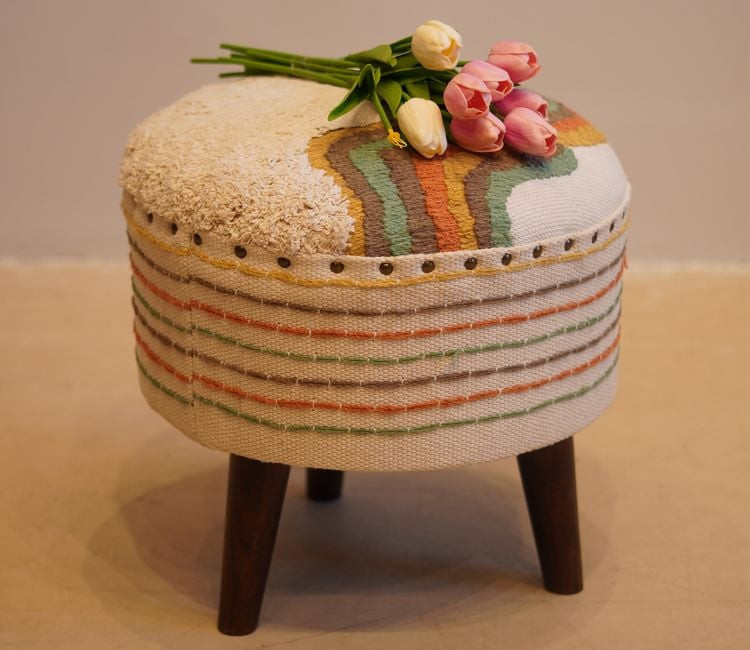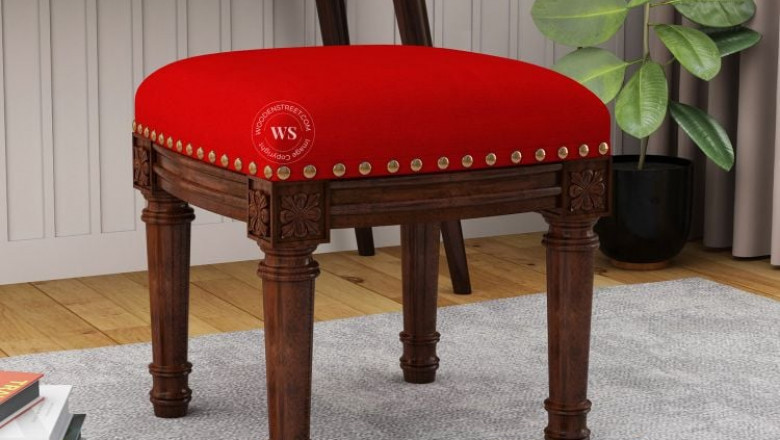views
The way we choose to sit can reveal much more about us than we may initially realize. From the way we arrange our seating to the type of chair or stool we opt for, the furniture we use has a significant impact on our comfort, posture, and even our personalities. For many people, a wooden stool might seem like a simple, utilitarian choice, but these items—whether they’re a stool for the living room or a wooden stool for sitting at a kitchen island—carry deeper psychological and cultural implications.
The Connection Between Seating and Personality
It may seem surprising, but the type of stool—or any seating furniture for that matter—can reveal a great deal about a person’s character, preferences, and even their current emotional state. Sitting stools, in particular, have a unique ability to influence how we interact with our surroundings and how others perceive us. The minimalist design of a wooden stool for sitting or the relaxed aesthetic of a stool for living room can subtly communicate certain aspects of our personality.
1. Comfort and Practicality vs. Aesthetic and Style
One of the first things to consider when thinking about the psychology of your stool is whether you choose comfort and practicality or style and aesthetics. Some people opt for a wooden stool because of its durability and timeless charm, while others may lean towards a modern, ergonomic sitting stool that promises maximum comfort for long hours of sitting.
If you’re drawn to a wooden stool for sitting, it could indicate that you appreciate simplicity and functionality. Wooden stools, often associated with rustic or minimalist decor, are practical and straightforward. Choosing a stool for the living room with clean lines and natural wood finishes often conveys a preference for a peaceful, no-fuss lifestyle. It reflects someone who is grounded, appreciates nature, and enjoys timeless design over fleeting trends.
On the other hand, if you’re drawn to stools with plush cushions or sleek, contemporary designs, you may prioritize comfort and style. Such stools are often associated with a desire to impress and create a visually cohesive environment. People who choose this style of stool tend to care about creating a welcoming, aesthetically pleasing space, and are often seen as approachable and social.
2. The Role of Material in Reflecting Personality
The material of the stool you select also plays a significant role in communicating aspects of your personality. Wooden stools, for example, exude warmth and a natural, rustic charm. They are often linked with a more traditional or eco-conscious lifestyle. If you choose a wooden stool for sitting, it can suggest that you value durability and the timelessness of natural materials. Wood has a grounding effect, often evoking feelings of comfort, warmth, and stability.
A sitting stool made of metal or plastic, on the other hand, may convey modernity, practicality, and even a bit of an industrial edge. This choice often reflects someone who values functionality and enjoys a more contemporary or minimalist aesthetic. These stools, while not as warm as wood, tend to signal that the person is forward-thinking, practical, and perhaps even a bit experimental when it comes to design choices.
3. Stools as Social Tools
The arrangement of seating also speaks volumes about how a person wants to interact with others. A stool for the living room, for example, is a great tool for fostering an informal, relaxed social atmosphere. Unlike traditional chairs with backs and arms, stools invite a more open and accessible seating arrangement. They don’t create the same boundaries that a traditional chair or sofa might, encouraging more fluid social interactions.
Stools can also have a psychological impact on how we view our own role in social situations. Sitting on a stool in a living room may subconsciously communicate that you are open to conversation, flexible, and adaptable. Stools are typically lightweight and mobile, which can be a reflection of a person who is adaptable and comfortable with changing environments. They offer a less formal, more interactive way to participate in socializing, unlike more conventional seating which can imply a more reserved or static role.

4. The Influence of Stool Height and Design
The height of the stool also has a psychological impact. A wooden stool for sitting at a low height—perhaps near a coffee table or in front of a couch—creates a sense of relaxation and comfort. It’s often associated with unwinding after a long day, providing an inviting place to rest without the formality of a traditional armchair. This type of stool suggests that you value comfort and relaxation, and likely enjoy a laid-back lifestyle.
On the other hand, stools with higher seats—such as those designed for kitchen counters or bar seating—can suggest a more active, dynamic personality. These higher stools are often used in environments where people gather, cook, or engage in conversation. Choosing a tall stool or a sitting stool for a counter could indicate that you enjoy being in the middle of the action, thrive in social settings, and like to remain engaged with what’s happening around you.
The Stool as a Symbol of Status and Power
Throughout history, stools have often symbolized power and status. In ancient civilizations, the stool was a symbol of authority, with royalty and high-ranking individuals sitting on stools made of expensive materials like gold and ivory. Even today, the type of stool we choose can have similar symbolic meaning.
In modern times, a wooden stool for sitting might evoke an image of a classic, timeless design—someone who values tradition and stability. Meanwhile, a sleek, contemporary sitting stool might suggest someone who is forward-thinking, trendy, and enjoys modern luxuries. The way we furnish our spaces with stools can subtly reflect how we want to be seen by others, or how we feel about our own place in the world.
The Psychological Impact of Sitting on a Stool
Aside from its social implications, the act of sitting on a stool has its own psychological effects. Unlike a traditional chair, a stool often lacks back support, which can subconsciously encourage a more upright posture. This leads to a more alert, focused state. Choosing a sitting stool with no backrest can even influence how engaged or active you feel in your environment. Sitting on a stool, with its minimal support, can create a sense of mobility, reminding us to remain active or engaged rather than slouching back into comfort.
In contrast, stools with more supportive features, such as padded seats or backrests, offer comfort without sacrificing the relaxed, informal vibe that stools bring. This balance is often a reflection of a person’s ability to remain both productive and relaxed at the same time.
Final Thoughts: Your Stool and You
The choice of stool, whether it’s a wooden stool for sitting, a stool for the living room, or a more modern sitting stool, says a lot about who you are. It’s not just about the furniture—it’s about how we choose to interact with our surroundings and communicate with others. The stool you select can reflect your personality, values, and even your social preferences. It tells the world that you appreciate style and comfort, functionality and design, and perhaps most importantly, how you want to feel and be perceived in your own space.
By paying attention to the psychology of seating, we can better understand ourselves and the environments we create. So next time you choose a stool, whether for your kitchen, living room, or workspace, consider what that choice says about you—and how it makes you feel.













Comments
0 comment